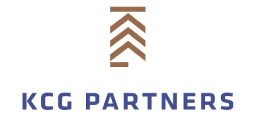The Tax Foundation issued its annual International Tax Competitiveness Index (ITCI) of 38 OECD countries. The Index seeks to measure the extent to which a country’s tax system adheres to two important aspects of tax policy: competitiveness and neutrality. The ranking weighs variables across five categories: corporate taxes, individual taxes, consumption taxes, property taxes, and international tax rules.
According to the ITCI, Hungary stands out in terms of income taxes - 5th and 6th for corporate and individual taxation, respectively - highlighting that Hungary has the lowest corporate tax rate in the OECD at 9% and Hungary has a flat personal income tax system. Still, Hungary received the best rating with regard to international tax rules thanks to ‘better-than-average’ Controlled Foreign Corporation rules and its widespread treaty system.
The Tax Foundation also points to the tax burden on consumption and property as a weakness: Hungary’s 27% VAT rate is the highest among OECD states, plus Hungary levies taxes on estates, real estate transfers, and bank assets. According to the methodology of the Index, a country’s consumption tax score is broken down into three subcategories: tax rate, tax base and complexity. It seems that in the case of Hungary the world’s no. 1 VAT rate was predominant and ‘granted’ the last position in this regard. ‘Fortunately’ for Hungary, the Individual Income Taxes category score is the most highly correlated with the final score while the Consumption Taxes category is the least correlated with the final score.
For the ninth year in a row, Estonia has the best tax system in the OECD, according to the freshly published Tax Competitiveness Index 2022. Estonia's transparent and straightforward tax system attracts investments with no corporate income tax, no capital tax, and no property transfer taxes.
It is also worth noting that ITCI rank and actual economic performance might not correspond in each case; i.e. Turkey is currently ranked at 9th, while Germany and the United States come in at 15th and 22nd respectively. By definition, the Index is more about the overall design of a tax system and not specifically to be predictive of actual economic outcomes.
By Bálint Zsoldos, Head of Tax, KCG Partners Law Firm


